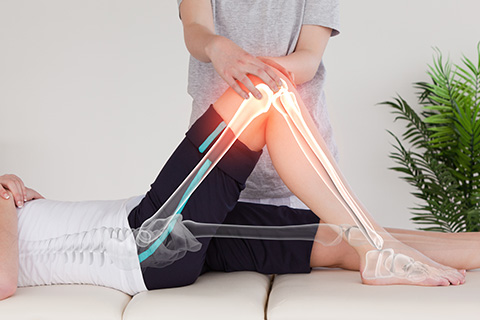Can you imagine a treatment that can regenerate tendons and heal chronic knee injuries without leaving sequelae?
In the fascinating world of sports medicine, scientific advances never cease to amaze us. A new treatment based on cultured mesenchymal stem cells (MSCs) has become the hope for those suffering from tendon injuries, better known as tendinosis. These injuries account for 60% of sports injuries and are related to cyclic overload and progressive loss of tendon responsiveness.
A recent clinical trial conducted by the Institute for Tissue Regenerative Therapy (ITRT) has shown that this innovative therapy not only heals injuries but also regenerates damaged tissue without leaving sequelae.
What does tendon regeneration treatment consist of?
Tendon injuries are extremely common, both in the general population and among athletes, and their full recovery represents a significant challenge. This new treatment has opened a path to hope for those chronic patients who had no effective treatment options until now. According to the clinical trial, led by Drs. Robert Soler, Lluís Orozco, and Gil Rodas, this therapy has demonstrated an unprecedented degree of regeneration. It reduces pain and allows a successful return to sports practice in a period of only two months.
The study was carried out at the Centro Médico Teknon in Barcelona, part of the Quirónsalud group, and involved 20 patients affected by chronic patellar tendon injuries, all of whom were regular athletes who did not respond to conventional treatments. These patients were divided into two groups: one received treatment based on cultured mesenchymal stem cells obtained from their own bone marrow, while the second group was treated with platelet-rich plasma (PRP).

The results of this important research were measured clinically using assessment scales such as VAS and VISA-P, and imaging technology such as ultrasound and high-resolution MRI.
The results obtained place this novel therapy with cultured mesenchymal stem cells as one of the major advances in sports medicine and traumatology in recent decades. Patients who received stem cell treatment achieved immediate tendon regeneration and recovery without sequelae; those treated with PRP only achieved a reduction in pain discomfort, with no significant improvement in the damaged tissue.
The relevance of this new therapy in the field of sports studies is unquestionable. Sports medicine is constantly evolving, and for students and professionals in this field it becomes essential to keep up to date with the latest scientific advances.
If you are interested in exploring more about this fascinating subject and broadening your knowledge in the field of physical activity, training and sport management, study the Master in Physical Activity: Sports Training and Management offered by the Universidad Internacional Iberoamericana (International Iberoamerican University, UNIB). Being part of this academic community will give you the opportunity to be at the forefront of research and innovative practices.
Source: Advances in sports medicine: New treatment regenerates tendon and heals injuries without sequelae

